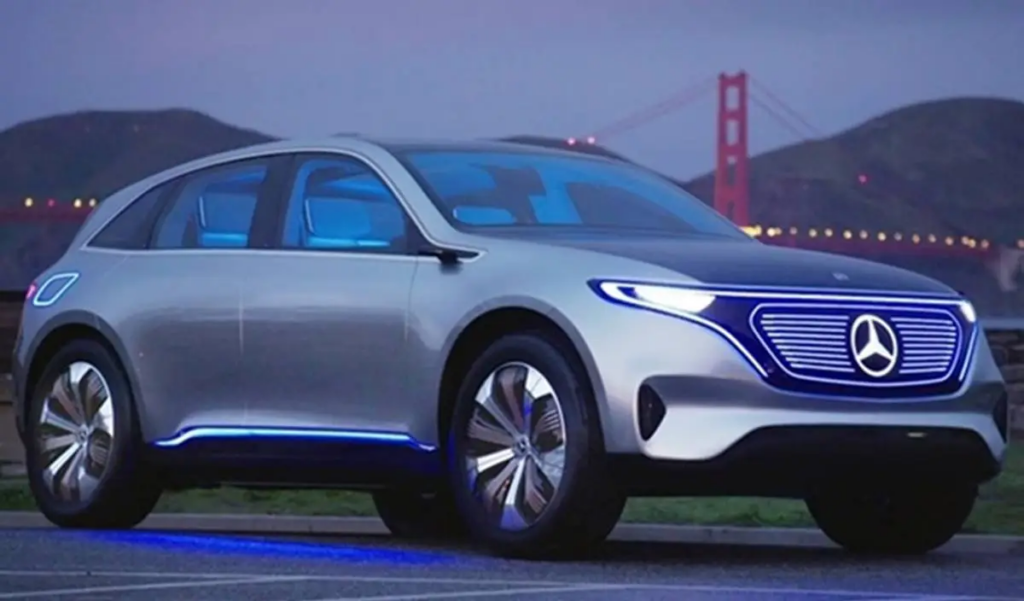
The Society of Motor Manufacturers and Traders (SMMT) reports that sales of electric vehicles reached an all-time high in March 2023.
More than a third of the vehicles registered this month were electric vehicles (EVs). For the first time, the SMMT reported that sales of electric vehicles would outnumber sales of new diesel vehicles.
MoneySuperMarket called the increase in EV sales “not surprising” in light of the climate problem. The comparison website noted that while EVs have several benefits, reduced operating costs and zero emissions are “the main selling points.”

It’s true that “electric cars remain an expensive choice,” as The AA put it. New gas-powered automobiles can be had for under $10,000, while “few electric ones” cost less than $20,000. NimbleFins estimates that the typical price to be around £50,000.
Should one invest in an electric vehicle?
MoneyWeek opined that having an electric vehicle would be desirable. “There are a lot of models on the market now, so you won’t have to drive something clunky and ugly,” one reviewer wrote.
According to the financial website, electric cars should be cheaper to operate than conventional ones after accounting for gasoline expenses, government subsidies, and emissions penalties.
However, the upfront costs of EVs tend to be higher, and many of the popular government subsidies have been eliminated. The Department of Transportation (DOT) eliminated subsidies for plug-in hybrid and electric vehicles last year, citing “success in creating a mature market for ultra-low emission vehicles” as the reason for the decision.
Another problem is charging, especially when it must be done in a public place. Home chargers for electric vehicles allow their owners to take advantage of cheaper electricity rates during the evening hours. The Times estimated that this would save the average driver £130 per 1,000 driven. Although, “savings reduce to £40 for those drivers using public chargers.”

Home chargers used to be eligible for DfT funding, but now only landlords, individuals who rent or own an apartment, or those setting up chargers for a workplace can receive this assistance. Instead, funding is going into taxis, motorcycles, vans and trucks, vehicles accessible to people using wheelchairs, and public charging stations.
The newspaper said that ministers are being encouraged to rectify this disparity with VAT, with drivers paying 5% domestic VAT while charging at home and 20% when using public chargers.
Renting an Electric Vehicle
Leasing, personal contract hire, and hire purchase are all viable options for renting an EV, just like they are for renting a gasoline or diesel car. The AA suggests that you can save money in the long run by leasing an electric vehicle, which involves making smaller monthly payments and an initial investment.
The RAC noted that the most common method of paying for a new electric vehicle is through leasing. The breakdown service provider stated, “not least because you’re essentially renting the car from the leasing company,” which makes leasing an electric vehicle the most cost-effective financing option. As little as £200 a month is possible with some plans.
MoneySuperMarket warns that leasing a car comes with restrictions, such as a maximum annual mileage. You also won’t have any editing capabilities.
Salary sacrifice programs allow business owners and employees to lease electric vehicles. DriveElectric noted that the employer leases the electric car through a financial business and offers the plan to its employees as a benefit. The car is paid for out of the employee’s pre-tax compensation, lowering the employee’s net take-home pay.

Users are still responsible for paying a benefit in kind (BIK) tax penalty, but Drive Electric pointed out that the low rate of 2% makes EV salary sacrifice attractive. “but remain very low compared to internal combustion engine vehicles until at least 2028,” the UK government has affirmed on BIK charges.
Hire buy vs. individual contract
MoneySuperMarket reports that drivers can acquire an electric vehicle through a personal contract purchase (PCP) plan, in which they make a down payment and make monthly payments toward the vehicle’s remaining value. At the end of the lease term, you have the option of either making a last, higher payment to keep the automobile or returning it.
A hire purchase (HP) agreement allows you to finance a brand new electric vehicle over a certain time period and become the legal owner at the end of the term.
MoneySuperMarket noted that although PCP often has lower monthly payments than HP, “so you end up paying more interest overall compared to an HP deal at the same rate.”

However, the RAC noted that an HP agreement may not be the best choice for an EV since “the rate of development in the field of battery technology is such that you could find that your EV is slightly outdated and outmoded by the end of the contract.”
Getting a car loan is another choice if you want to buy the car. After making your final monthly payment on your auto loan, you will own the vehicle outright, as stated by MoneySuperMarket.
Companies like Volvo and Hyundai provide subscription services for electric vehicles. Parkers compared this to leases, explaining that the customer is effectively renting the vehicle and will never own it.
Subscription plans, on the other hand, include not only the monthly payment for the vehicle, but also the cost of insurance, repairs, and registration. The standard duration of a contract is between 12 and 24 months.
According to Maria McCarthy’s warning in the Evening Standard, many of these financing deals are “complex transactions” that include not just the car but also mileage limits, fees for vehicle damage, insurance, a charge for additional drivers, maintenance fees, fees if you want to end a lease early, and delivery fees.
She urged listeners to do their own research, including crunching numbers and reading fine language, and to “ask family and friends and visit electric vehicle forums on social media for advice and personal recommendations.”
